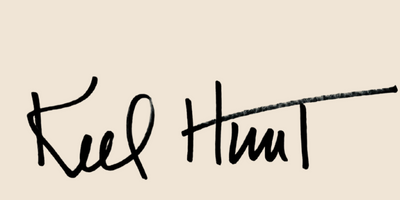Find the Good
/The great author Alex Haley, who grew up in West Tennessee and became important to the whole wide world, urged us in his lifetime to “Find the good, and praise it.”
By this he meant that each of us should seek out the inspiring stories our families tell write them down. That is what Haley did in his own family research that inspired Roots, and that spurred others who read the book or watched the TV mini-series to capture stories of their own generations.
Haley’s six words – Find the Good, and Praise It– are timely instruction for us now, whatever our creeds and circumstances. There is much good to recognize in our world, and across Tennessee, especially in this time of much worry and stress that can otherwise make us to feel gloomy.
Nashville is a city of good people doing good things daily. So are Memphis and Knoxville and Chattanooga, and every crossroads and hamlet in between. We don’t read much about these acts of goodness, partly because Good News is not much the job of news media nor of the Internet. More of it ought to be. Today we could use the grounding of good role models and their deeds that inspire and not deflate and discourage.
This is where my own optimism comes from: Reminders of what is commendable around us and of the good souls who make it so.
I was invited to speak in Knoxville the other day. May 1 was Law Day, annually observed by attorneys and bar associations across the nation. I was telling those 200+ lawyers about the history of bipartisanship that produced great things in Tennessee in the 1980s and 1990s. During the Q&A session, a gentleman in the back of the room stood and asked me, “Do you really expect we can get back to that kind of bipartisanship in our country?”
I answered, “Yes, partly because I’m an optimist and I feel in my bones that our country is capable of doing that.” Not only do I believe we must have a restoration of civility, but my gut tells me that most Americans want it back.
A few days later, in Nashville, a friend suggested to me how we may be “living through the end of the Enlightenment.” In the latter third of the last millennium, objective science, Renaissance art, and public education overtook the strictures of autocrats and the medieval church.
Watching today’s spasms of gun violence, the cowardice of Congress and legislatures to push back against them, together with the rise of intolerance, it feels hard to deny in this moment that we’re living through end-times on some level. But I’m an optimist for many reasons. That’s partly, I admit, because I don’t like feeling pessimistic or being down about my country in spite of our temporal leadership. And partly because I am lifted when I look in the eyes of grandchildren, who give me a mixture of hope and a feeling of responsibility.
Finally, I also see the good that flourishes around us all – not in the headlines but at street level – of the kind that Mr. Haley celebrated. A few examples…
· Teachers. The work teachers do makes an undeniable difference in the lives of children, making discerning citizens of each new generation. This is the true hope of cities and nations, and astonishing examples abound.
· Librarians.There is much good that libraries do, day in and day out. Professional librarians work in a wide assortment of library types, in fact, from those at K-12 schools to colleges to our great public libraries and all their branches in the inner cities, rural zones and suburbs.
· Non-Profits.These agencies do vital work of social healing and community building. They are driven forward by committed professionals, supportive donors, long tradition, and great need. This is a largely untold story of how Nashville works.
· Philanthropy. Take the “Big Payback” initiative, managed by the Community Foundation of Middle Tennessee. In this year’s edition, more donors gave more money to more non-profit agencies than ever before. There is much generosity here.
· Good Neighbors.Neighborhoods certainly change – and nowhere more lately than my own hometown – but so many citizens still want to know their neighbors and to be available to help where they can.
· A Welcoming City. At a time when some politicians see personal gain in dividing native from immigrant, Nashvillians believe otherwise, and they walk the walk. Ten years ago, in defeating the dark “English Only” referendum, voters here declared we prefer to be a welcoming place, knowing that immigration made us stronger over centuries.
There are more than these – many more – and I hope to spread the word in future columns. I hope you will share the Good you see, and how it helps you see hope in our loud and distracted world.


